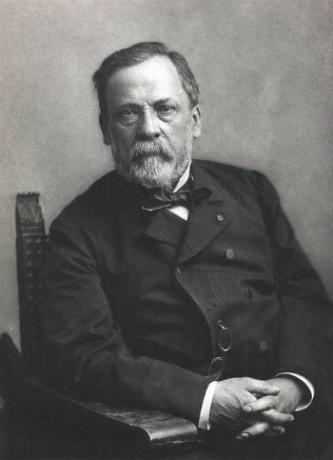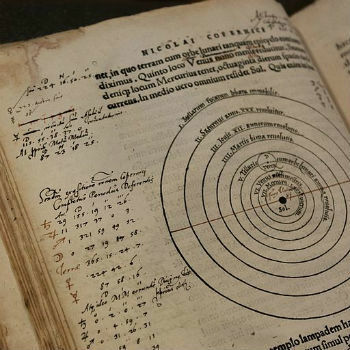Louis Pasteur (1822 - 1895) was a French scientist who made important discoveries in medicine, microbiology and chemistry.
Pasteur sparked his interest in chemistry and scientific research when he studied at the Sorbonne University in Paris. In 1842 he graduated and in 1847 completed his doctorate in chemistry and physics.

Louis Pasteur
Pasteur traveled throughout France to prove his theories and solve agricultural, industrial and healing problems for people affected by infectious diseases.
After years of studies, research and work in universities, in 1888 the Pasteur Institute was created and inaugurated, directed by himself, until his death in 1895.
The Pasteur Institute, a private, non-profit foundation, is one of the most important research centers in the world. Currently, there are branches in 26 countries on five continents, forming the International Network of the Pasteur Institute.
Louis Pasteur's Discoveries
Louis Pasteur carried out several experiments that led to important scientific discoveries.
Among Pasteur's discoveries, the following stand out:
- the concept that diseases are caused by microorganisms;
- the pasteurization process;
- rabies vaccination;
- the establishment of the theory of biogenesis.
Crystallography and Stereochemistry
The discovery of tartaric acid, present in wine sediments, sparked Pasteur's interest.
Between 1847-1857, Pasteur devoted himself to studies in chemistry. The shape of tartaric acid crystals was studied by Pasteur. He performed the preparation of an aqueous solution of tartaric acid and analyzed it under polarized light.
Pasteur drew a parallel between the outer shape of a crystal, its molecular structure and its action under polarized light.
Thus, he formulated the hypothesis of molecular asymmetry. According to this hypothesis, the biological properties of substances depend not only on the nature of the atoms, but also on their arrangement in space.
Fermentation and Biogenesis
Until the beginning of the 19th century, the theory of spontaneous generation or abiogenesis was accepted. She postulated that microorganisms arose spontaneously.
Some experiments tried to overturn the theory of spontaneous generation, such as the Redi Experiment. However, it was only completely overthrown by Louis Pasteur.
For this, he carried out an experiment using flasks with a different shape, the flasks with swan necks. By heating the jars with meat broth inside, the air was prevented from coming into contact with the broth. Upon breaking the neck of the bottle, air entered and the heated broth deteriorated.
With this experiment, Pasteur demonstrated that the emergence of life forms is only possible from a pre-existing one.
Read too:
- Origin of life
- Redi experiment
- Abiogenesis and Biogenesis
In 1864, Pasteur began research into fermentation at the request of winemakers and brewers in France. Producers faced serious economic losses due to the sourness of their products.
Pasteur identified that bacteria present in the air were responsible for the sourness. After some tests, he found that at a temperature of 60ºC the bacteria could not resist. Thus, the solution would be to keep the products at that temperature until they are packaged in aseptic and hermetically sealed containers.
This process was known as pasteurization and is still used today.
Infectious diseases
In the area of Medicine, Pasteur discovered the vaccine against rabies in 1885. He was responsible for the first treatment against human rabies.
Pasteur demonstrated that many diseases were caused by contamination by microorganisms. He also emphasized the need for improvements in hospital practices, such as the sterilization of equipment.



